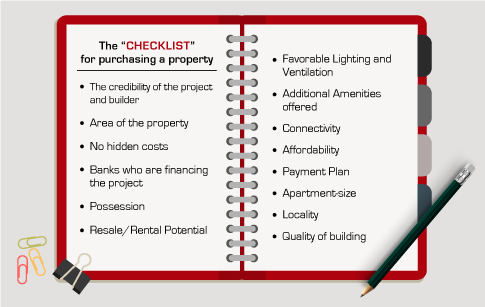The UK property market is reeling as home sale cancellations surge to levels not seen since the financial crisis. Buyers are walking away from deals in growing numbers, sending shockwaves through the housing sector. Around 14.3% of sales under contract failed to complete last month, according to industry data. This dramatic rise in failed transactions reflects how rising interest rates and market volatility are eroding buyer confidence.
Mortgage rate hikes are the most significant driver of this shift. With borrowing costs climbing steeply, many buyers find themselves unable to qualify for loans or unwilling to commit. As home sale cancellations surge, it’s becoming increasingly clear that affordability is no longer just a challenge — it’s a deal-breaker for many aspiring homeowners.
What’s Driving the Home Sale Cancellations Surge?
The home sale cancellations surge isn’t the result of a single issue, but a combination of stressors. Chief among them is the rapid increase in mortgage rates, which is forcing buyers to reassess their financial readiness. A monthly payment that seemed manageable a few months ago may now be out of reach due to tighter lending standards and higher interest charges.
Additionally, economic uncertainty is making potential buyers more cautious. Fears of job loss, inflation, and market instability are encouraging a wait-and-see approach. This is why, as home sale cancellations surge, the same pattern of hesitation is being observed in related sectors, from flight cancellations and train cancellations to driving test cancellations, where disrupted plans are becoming the norm.
Market Consequences of Rising Cancellations
When home sale cancellations surge, the effects ripple through the housing chain. Sellers are left in limbo, unable to move forward with their next purchase. Estate agents miss out on commissions, and solicitors lose revenue from abandoned contracts. This growing instability is cooling down housing activity, which could contribute to a broader market slowdown if trends continue.
Fewer completed sales also mean increased supply. Properties that fall through often return to market, sometimes at reduced prices to attract cautious buyers. In a competitive landscape, where home sale cancellations surge, this additional inventory can suppress prices further, shifting leverage from sellers back to buyers.
The Emotional and Financial Toll on Buyers and Sellers

For buyers, the decision to cancel often comes after weeks of stress, paperwork, and financial planning. When deals fall apart due to last-minute mortgage rejections or valuation disputes, the disappointment is profound. As home sale cancellations surge, many are opting to delay purchases until market conditions become more stable or favourable.
Sellers, on the other hand, are often blindsided by cancellations. After accepting an offer, packing up, and sometimes making offers on their own new homes, they can be left scrambling. Repeated fall-throughs are becoming more common, with the home sale cancellations surge adding significant strain to the moving process.
Parallels With Cancellations in Other Industries
The home sale cancellations surge is part of a wider cancellation crisis affecting multiple sectors. Just as buyers pull out of home deals, passengers are facing EasyJet cancellations, Ryanair flight cancellations, and ferry cancellations today across the UK. These disruptions, often tied to the same economic pressures and operational bottlenecks, reflect a national climate of uncertainty.
In a similar vein, services like the DVSA cancellations app for driving tests are seeing unprecedented demand, as learners compete for rescheduled slots after last-minute disruptions. Whether it’s a home, a holiday, or a driving test, consumers are growing accustomed to cancellations as a frustrating part of modern life.
Tech-Driven Solutions to a Growing Problem
To counter the home sale cancellations surge, estate agents and buyers are increasingly turning to digital solutions. New platforms use AI and data analytics to flag risky buyers early, while pre-approval technology streamlines mortgage processes. These tools can help reduce fall-through rates by identifying weak links in the chain before contracts are signed.
Much like how airlines and cruise lines manage last minute cancellations with rebooking tools, the housing sector is now exploring smarter tech to minimise disruption. While these systems won’t fix macroeconomic problems, they can enhance communication, transparency, and preparedness — all vital when home sale cancellations surge.
Preparing for a New Market Reality
The housing market is entering a more cautious phase. With the home sale cancellations surge showing no sign of slowing, both buyers and sellers need to adopt new strategies. For sellers, this may mean thoroughly vetting buyers, securing backup offers, or considering cash buyers. For buyers, locking in mortgage deals early and understanding their financial limits is now critical.
While the past decade was characterised by fast sales and rising prices, today’s market is more fragile. Flexibility, patience, and preparation are the keys to success in a world where home sale cancellations surge is no longer an anomaly, but a regular headline.
Conclusion
The home sale cancellations surge is transforming the UK property market. Rising mortgage rates, increased financial scrutiny, and broader economic concerns are leading more buyers to walk away before completion. The effects are far-reaching, influencing everything from pricing to supply, and leaving a trail of uncertainty across the industry.
As cancellations become more common, buyers, sellers, and professionals must adapt to a slower, more complex market. Digital tools, stronger communication, and financial realism will be critical for navigating the new normal. Whether you’re moving home or simply watching the market, understanding why home sale cancellations surge is essential to making informed property decisions.
FAQs
Why are home sale cancellations increasing?
Cancellations are rising due to higher mortgage rates, affordability issues, and growing economic uncertainty, all of which make buyers more cautious.
What can be done to reduce cancellations?
Pre-approving mortgages, better buyer vetting, and using technology to flag risks early can help reduce cancellation rates.
Are other sectors experiencing similar issues?
Yes, sectors such as air travel, rail, and testing services are also facing cancellations, from flight cancellations today to mot cancellations and more.
Does this affect property prices?
When home sale cancellations surge, it often leads to more homes returning to market, which can apply downward pressure on prices in affected areas.
Is this trend expected to continue?
With interest rates remaining high and economic conditions still uncertain, the trend is likely to persist in the near term.
You may also read: Nationwide Mortgage Rates Drop to 3.90% – Compare June 2025 Fixed & Tracker Deals




